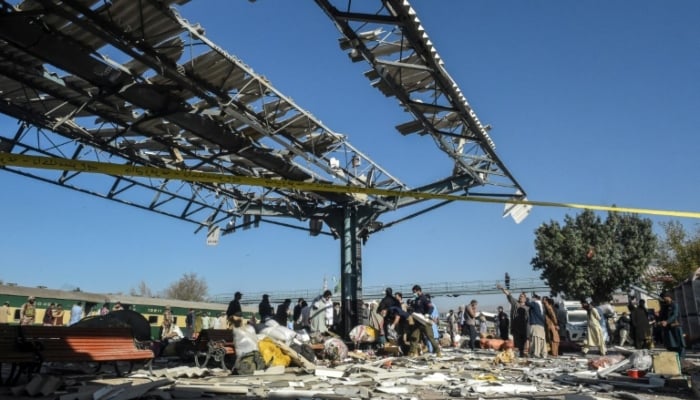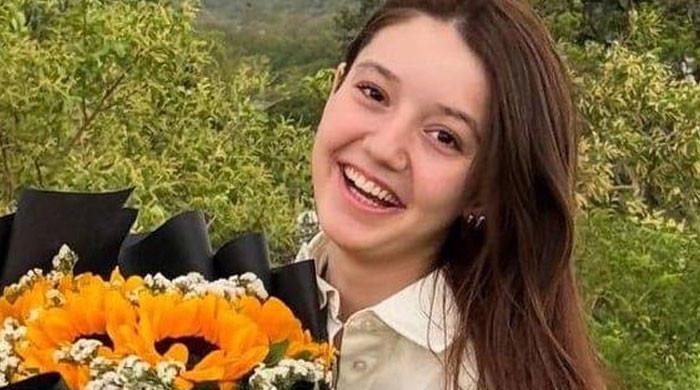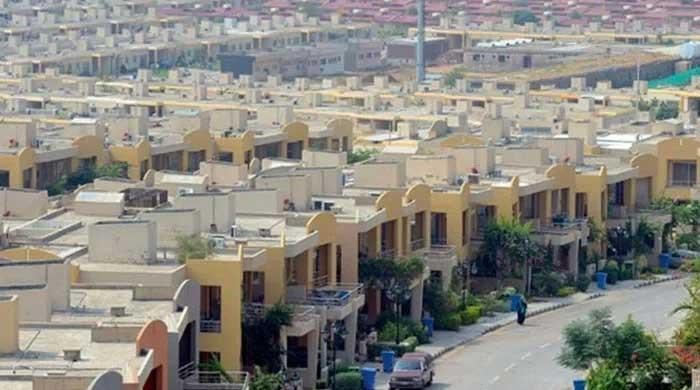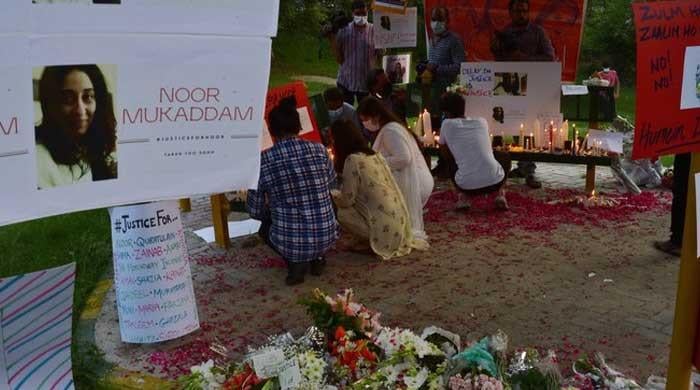The untold toll of terror
As people of Balochistan continue to endure daily threat of violence, they demand government take more decisive action to restore peace and security
December 02, 2024

“Where will I find my Imran? I sent him that morning for his job at the Quetta railway station,” said Samina Imran, wife of Imran Victor, a sanitary worker in the Pakistan Railways at Quetta. She became a victim of the November 9 bomb blast at the station. Needless to mention, Samina’s eyes were brimming with tears as she recalled the painful memories and her grief over the demise of her husband.
“I still can’t realise that Imran is no more, and he will never come home,” she lamented, overwhelmed by grief. The widow of the 41-year-old railway employee could not overcome the shock and mourning from the sudden loss of her husband. Samina explained that Imran had gotten ready on that Saturday morning, just as usual, and had gone to the railway station for duty — where death awaited him. While Samina shared her grief with Geo.tv, her children clutched their father’s pictures close to their chests, crying as they remembered him.
Imran, a member of the Christian community, worked as a sanitary worker in the Railway Department, Quetta, since 2010, and was performing his duties efficiently for the last 14 years.
Sadly, Imran’s story is far from an isolated one in Balochistan. A sudden upsurge in the incidents of violence in the province has become a growing cause for concern, not just for the residents but also for the Pakistan Peoples Party (PPP)-led coalition government in Balochistan.
Quetta was again struck by a devastating terrorist attack on November 9 when a suicide bomber blew himself up at the railway station, claiming the lives of at least 28 people, including security personnel, and leaving 62 others injured. This attack came on the heels of another tragedy in the Dukki district just 28 days earlier, where more than 21 coal miners were shot dead while they slept outside the mines.
Who could forget the bomb blast in Mastung, Balochistan, two weeks ago, which resulted in the death of nine people, including six schoolchildren? The incident brought back painful memories of the APS Peshawar attack that occurred 10 years ago. Such violent acts have unfortunately become all too common in Balochistan, raising serious concerns about security, or rather the lack of it.
This year, 733 incidents of terrorism have been reported in various parts of Balochistan, compared to 622 last year. These attacks have resulted in the deaths of 271 people, with the security forces, police, and the general public among the victims of these attacks. In response to these tragedies, the provincial government’s actions have been limited to condemnations and vows to defeat the enemy, but there has been little follow-through in terms of tangible security measures.
Ikhtiyar Hussain, a 37-year-old railway employee, told the Geo.tv that the November 9 attack at the railway station, which targeted innocent civilians, was particularly devastating.
“I received multiple injuries in the explosion, and in the meantime, I saw nothing but darkness and the pungent smell of explosive material,” Hussain said recounting the harrowing ordeal. “I lost consciousness. When I opened my eyes, I was in the hospital being treated.”
CCTV footage allowed investigators to piece together a timeline of the tragic event.
Muhammad Ishfaq, a retired professor at the University of Balochistan, described the chaos he witnessed when the blast occurred.
“It seemed as if judgment day had come,” Ishfaq said recalling the near-death experience.
Following the attack, all train services from Quetta were suspended for four days. Teams of investigators combed the area for every shred of forensic evidence and sat through every available closed-circuit television (CCTV) footage to make sense of the sequence of events. The Baloch Liberation Army (BLA), a banned terror outfit, later took credit for the deadly bombing.
An extensive investigation into the terrorist network responsible is underway amid pledges for all-out steps to trace and dismantle the group behind the bombing.
Prime Minister Shehbaz Sharif, along with Chief Ministers of Balochistan and Sindh, condemned the terrorist act. Later in the evening, Interior Minister Mohsin Naqvi and Chief Minister Sarfraz Bugti chaired a law and order meeting, vowing to expand ongoing intelligence-based operations to eliminate terrorist networks.
However, Balochistan continues to grapple with rising violence, particularly by separatist ethnic militants and other groups. Since Chief Minister Mir Sarfraz Bugti assumed office in March this year, the government has faced increasing unrest.
Despite the assurances from authorities, there is growing public frustration with the situation. Many residents feel the government's response has been inadequate and ineffective.
The violence has taken a serious toll not only on the peace but also on the region's economy. Business activities in Quetta, the capital of Pakistan’s largest province, have ground to a halt and fearful residents, particularly those from the Hazara community, are fleeing for their lives.
“Our business has collapsed due to lawlessness in Quetta, and the government remains oblivious to the gravity of the situation,” said Abdul Rahim Kakar, a businessman in Quetta.
The deepening sense of fear is also giving rise to post-traumatic stress disorder (PTSD) among the residents. This anxiety disorder, which is triggered by traumatic events, has also led to internal displacement. Local residents including professionals such as doctors, educationists, engineers, and businessmen, are migrating to safer areas in and outside the country in large numbers. Many from the Hazara community, especially young people, are fleeing to Australia or European countries in search of a better life. “I want to go abroad. I am here to obtain my passport. An agent has promised to send me abroad if I pay him Rs500,000,” said 19-year-old Haider Ali, speaking to Geo.tv outside the Quetta passport office.
As the people of Balochistan continue to endure the daily threat of violence, they demand the government take more decisive action to restore peace and security to the region. Until then, the people will continue to live in fear, hoping for a future where the government can provide them with the stability, they desperately need to rebuild their lives.









